- English
- Other Products
- FAQ
- MyASUS - System Diagnosis
- Subscribe to RSS Feed
- Mark as New
- Mark as Read
- Bookmark
- Subscribe
- Printer Friendly Page
- Report Inappropriate Content
- Article History
- Subscribe to RSS Feed
- Mark as New
- Mark as Read
- Bookmark
- Subscribe
- Printer Friendly Page
- Report Inappropriate Content
on
01-29-2024
05:04 PM
- edited on
10-07-2025
03:33 AM
by
![]() ZenBot
ZenBot
MyASUS - System Diagnosis
Applicable Products: Notebook, Desktop, All-in-One PC, Gaming Handheld
MyASUS System Diagnosis lists seven scenarios commonly encountered with PC devices and a one-click overall Hardware diagnostic. Each scenario comes with a brief description and allows you to quickly identify the scenario you have encountered and select the necessary Checkup. To help save time from contacting Asus Product Support, various tests are provided within each scenario. These tests not only verify the problems encountered, but also provide the proper solutions.
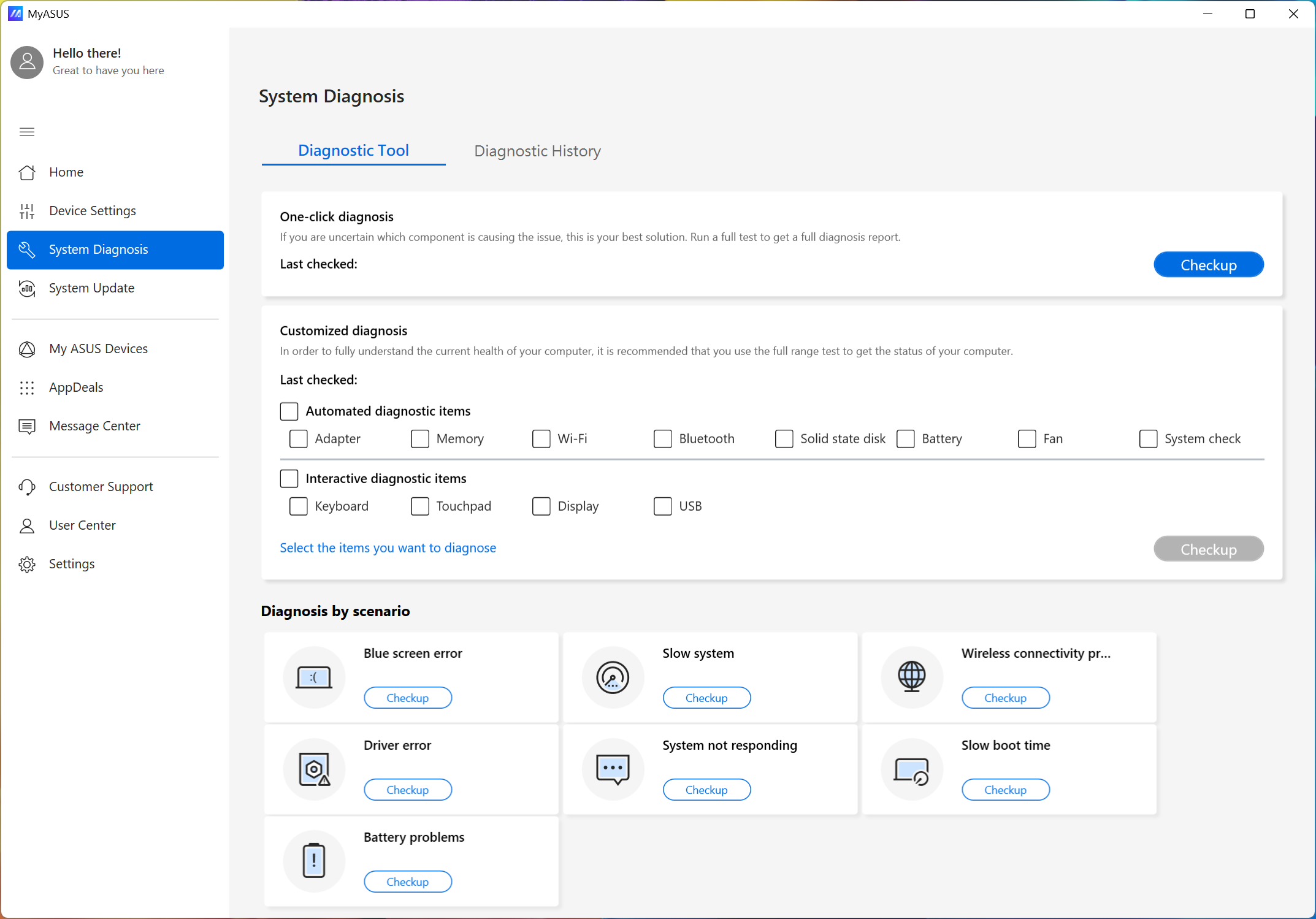
To provide you more detailed instruction, you can also click ASUS YouTube video link below to know more about How to use MyASUS Diagnostics Function.
https://www.youtube.com/watch?v=J8OSaBDXumI
| Scenarios | Description | Check item |
| One-Click diagnosis | If you have no idea one which component to be tested, you can choose this option to run a full system test. | Adapter, Memory, Wi-Fi, Bluetooth, Hard disk drive, Solid state disk, Battery, Fan, System check |
| Customized diagnosis | To be fully aware of the hardware health of your PC, it's recommended to run the Hardware Check to verify the hardware status in your PC. | Adapter, Memory, Wi-Fi, Bluetooth, Hard disk drive, Solid state disk, Battery, Fan, System check, Keyboard, Touchpad, Display, USB |
| Blue screen error | A Blue Screen of Death is usually hardware or driver related. Most BSOD's show a STOP code that can be used to help figure out the root cause of the Blue Screen. | Memory, Hard disk drive, Sector check, Device driver |
| Slow system | Insufficient memory and hard disk space are common causes of system slow down. Having multiple applications and windows open at the same time may also be the problem. | Memory, Hard disk drive, Hard disk space, Application usage, Fan |
| Wireless connectivity problems | The stability of the network carriers and Wi-Fi Internet devices is one of the most common causes of network disruptions. | Wireless device and settings, Network connection |
| Driver error | Setup of a wrong or old driver may cause the system to be unstable and system crash. | Device driver |
| System not responding | Random crashes usually result from the Windows settings, hardware failures, or malware damage. | Hard disk drive, Sector check, File distribution |
| Slow boot time | A bad hard disk or running too many programs in the background may influence the boot time and make boot time longer. | Memory, Hard disk drive, Boot time check, Task scheduler check |
| Battery problems | Make sure the system power supply is firmly plugged in with AC adapter. Check the power supply and confirm if all the detachable power cords are fully inserted. Make sure the battery is properly seated in the battery compartment, and the battery or system contacts without any problems. | Battery |
Note: The above check items may vary depending on the device model.
- Here are three methods to conduct system diagnostics. You can choose One-click diagnosis①, select the items you want to check in Customized diagnosis②, and then click [Checkup]③ to start to check. Or, click any of the scenarios below of Diagnosis by scenario④ to get more details of check items. (The following takes Customized diagnosis for example.)
The time required for the tests to complete will vary, so please be patient as some may take several minutes.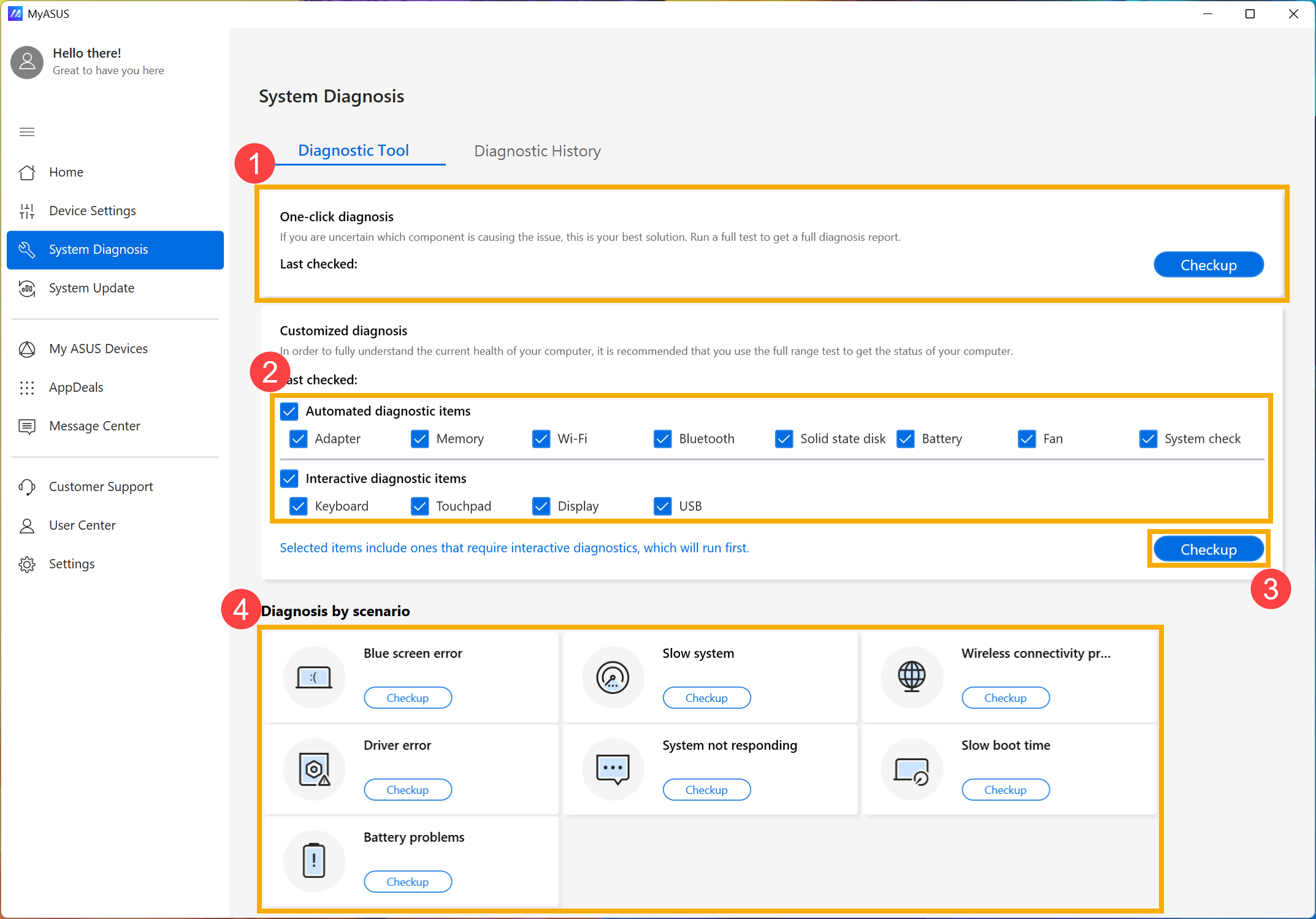
- Click [Result] after the test is completed⑤.
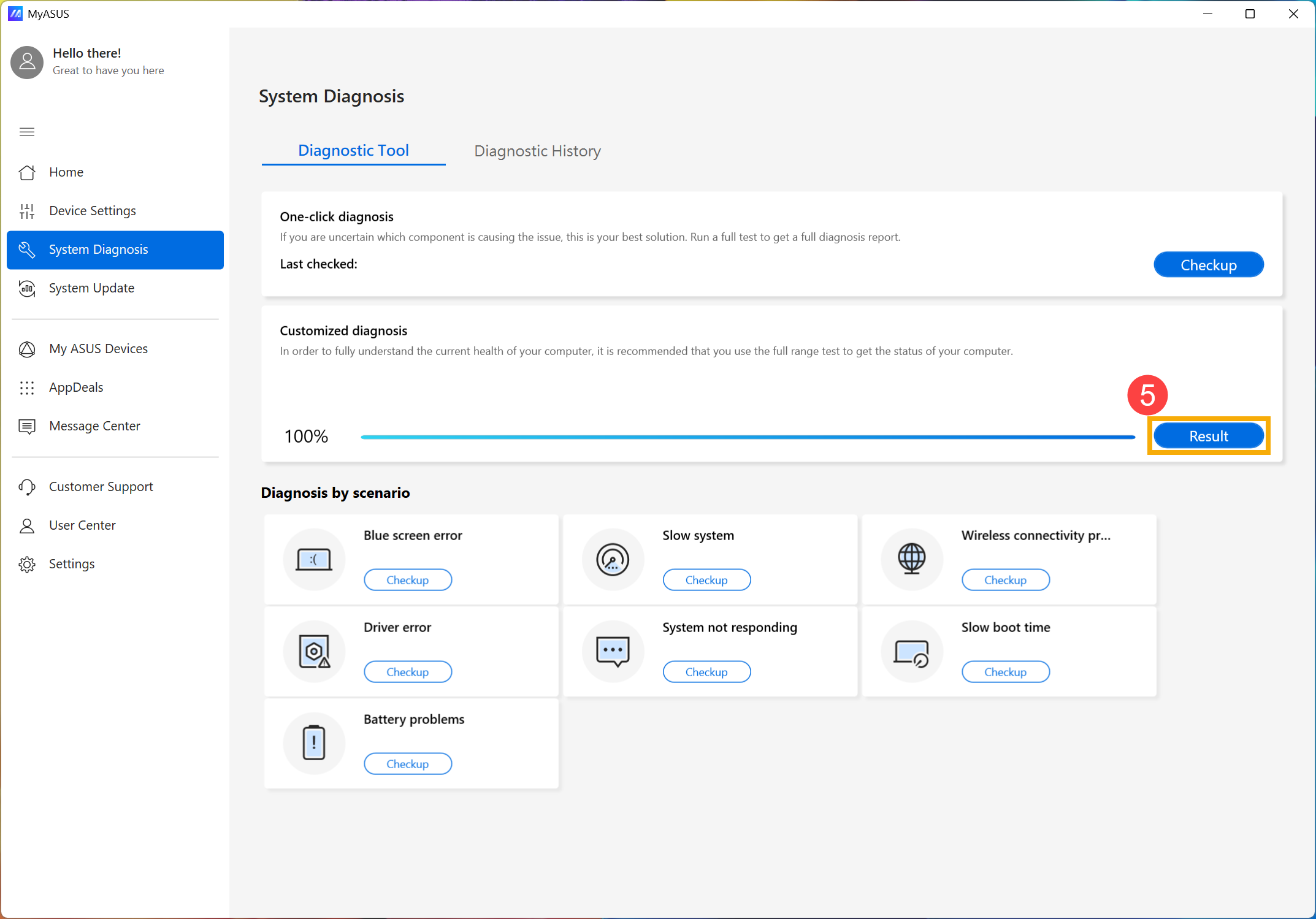
- If any error occurs after the test is completed, it will provide the error items, troubleshooting suggestions, and possible approaches to resolve the problem⑥. Besides, if there’s any hardware error, you can also issue a repair ticket in this page or you can test again to double check the error⑦.
Note: Please aware that some circumstances may need to do Windows Update which may lead to BitLocker recovery. We highly recommend you to save the BitLocker recovery key or disable BitLocker before executing Windows Update, you could refer to this article to learn more: https://www.asus.com/support/FAQ/1042922/.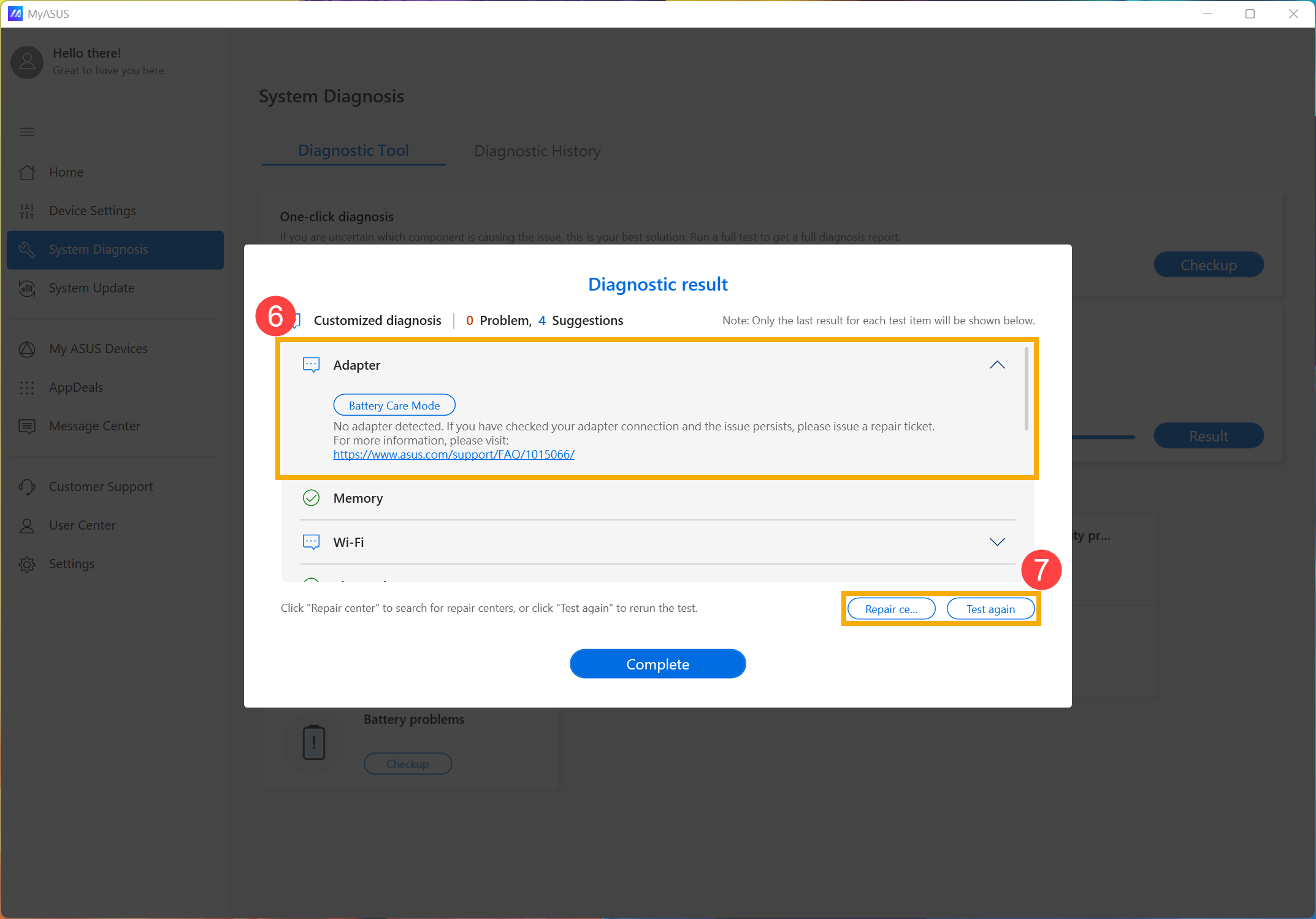
- You can also click [the last diagnosis time]⑧ to view the last test results.
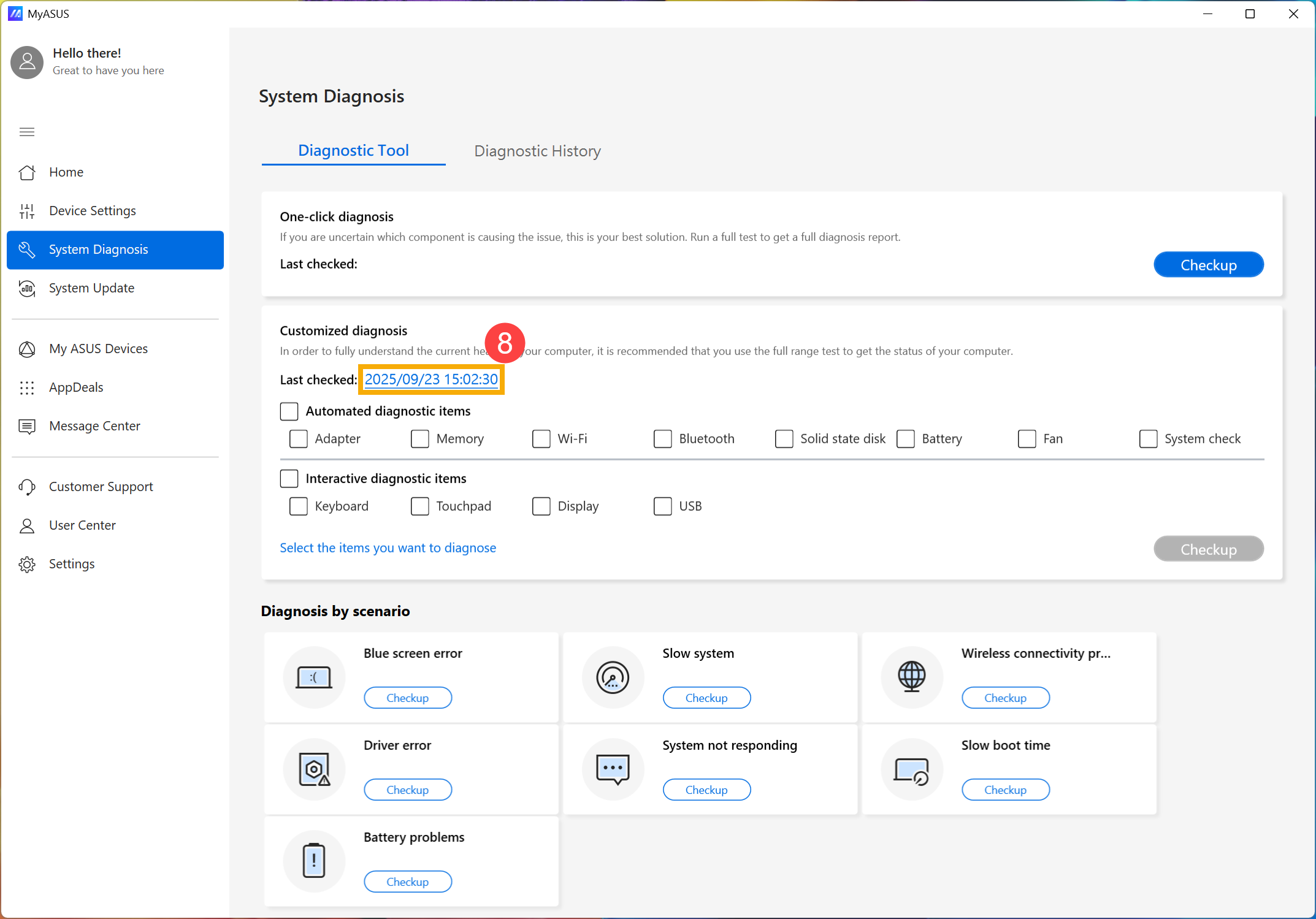
- In Diagnostic History⑨, you can see the previous diagnosis history, and in this page, you can have options to Reset my PC, Create a recovery drive or contact ASUS Customer services⑩. Please click [How to restore your PC] to learn more about restore process introduction, or click [Get Started] that will run the restore process directly.
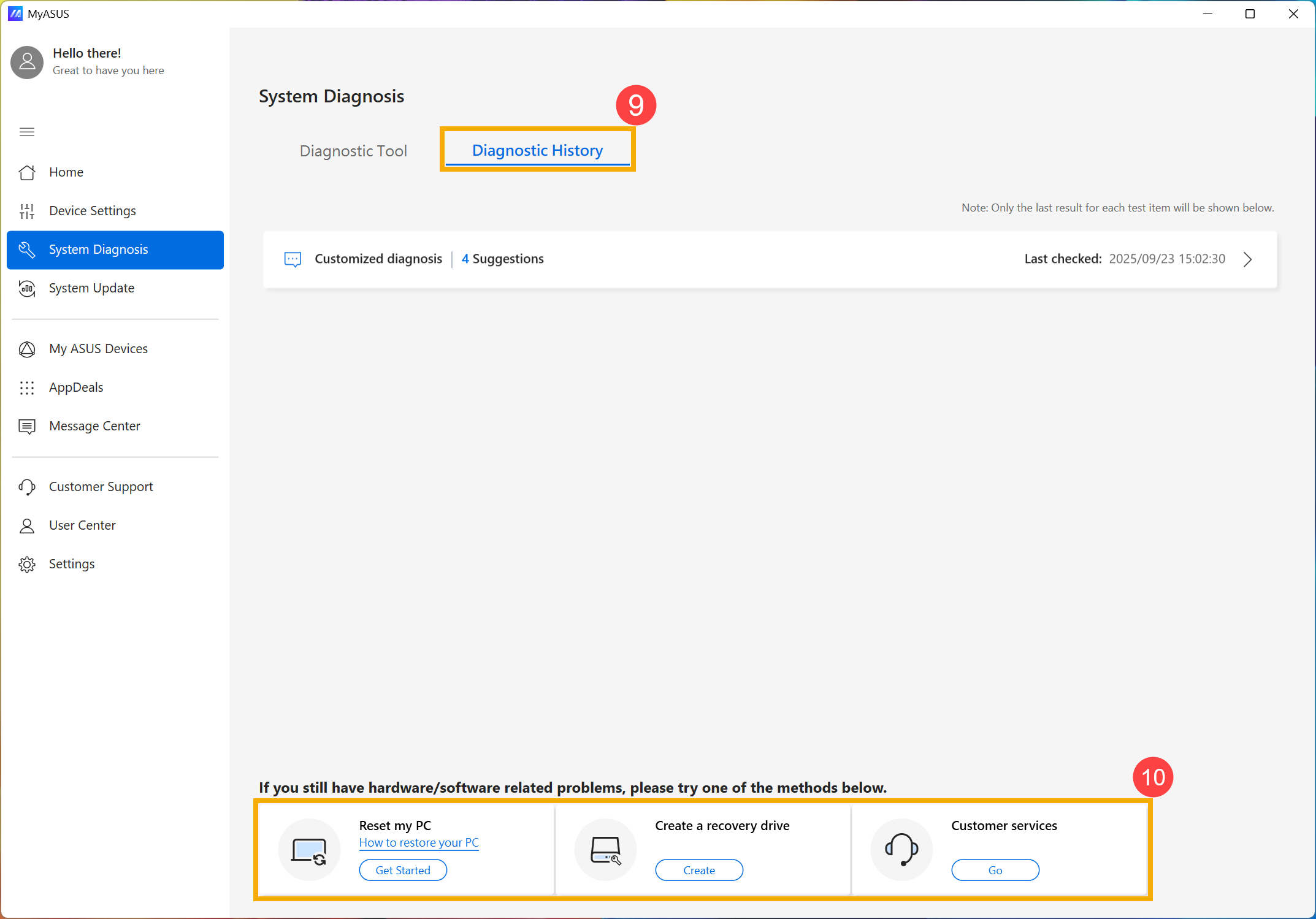
Question 1: How to check the MyASUS version?
Answer 1: Please click the [Settings] from the left menu①, and then select [About] from the top②, you will find the version number of the MyASUS installed in Current Version③.
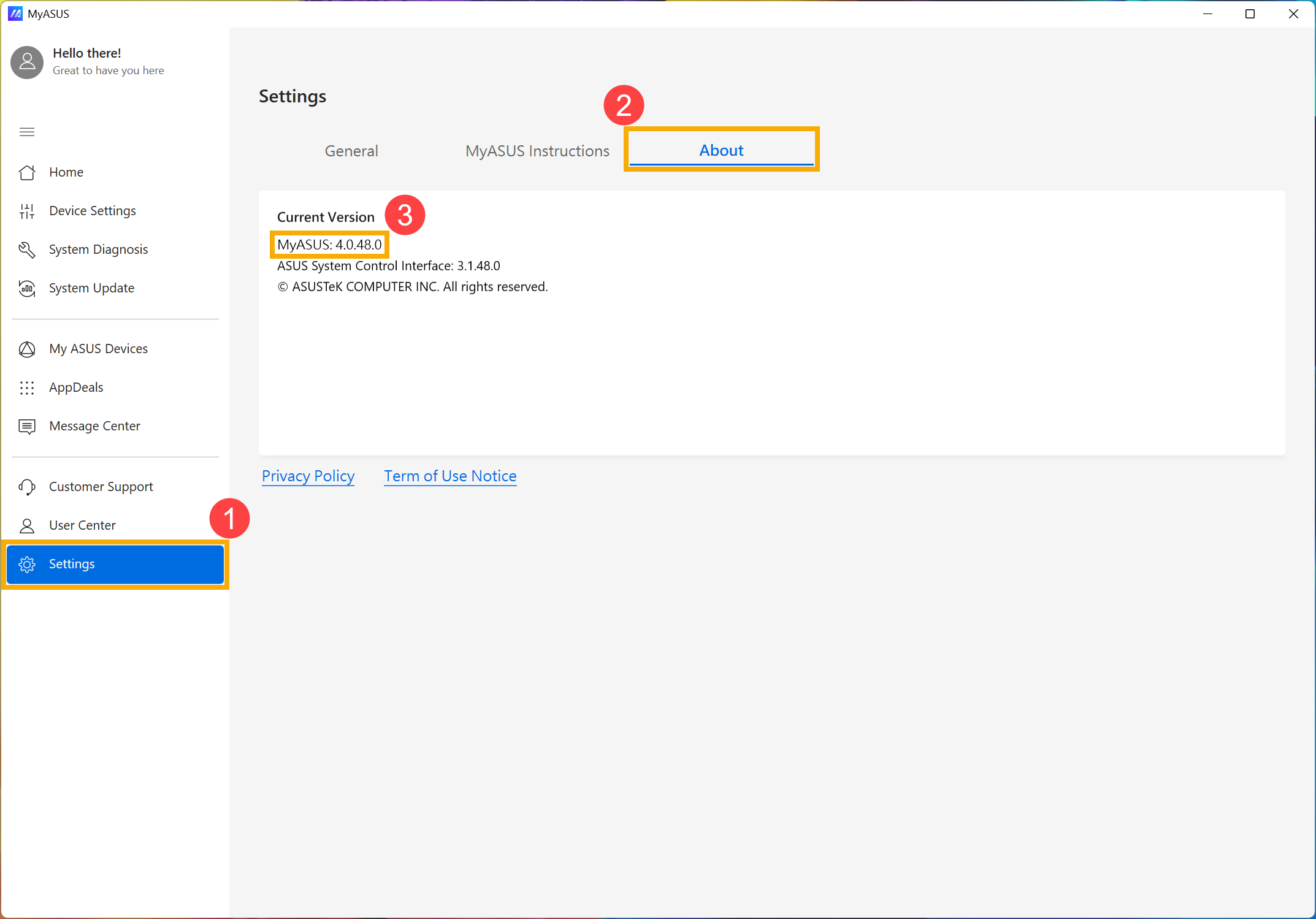
Question 2: Can I perform the system diagnosis of MyASUS in airplane mode?
Answer 2: Except for Wi-Fi & Bluetooth of Customized diagnosis and Wireless connectivity problems, the other tests can be performed in airplane mode.
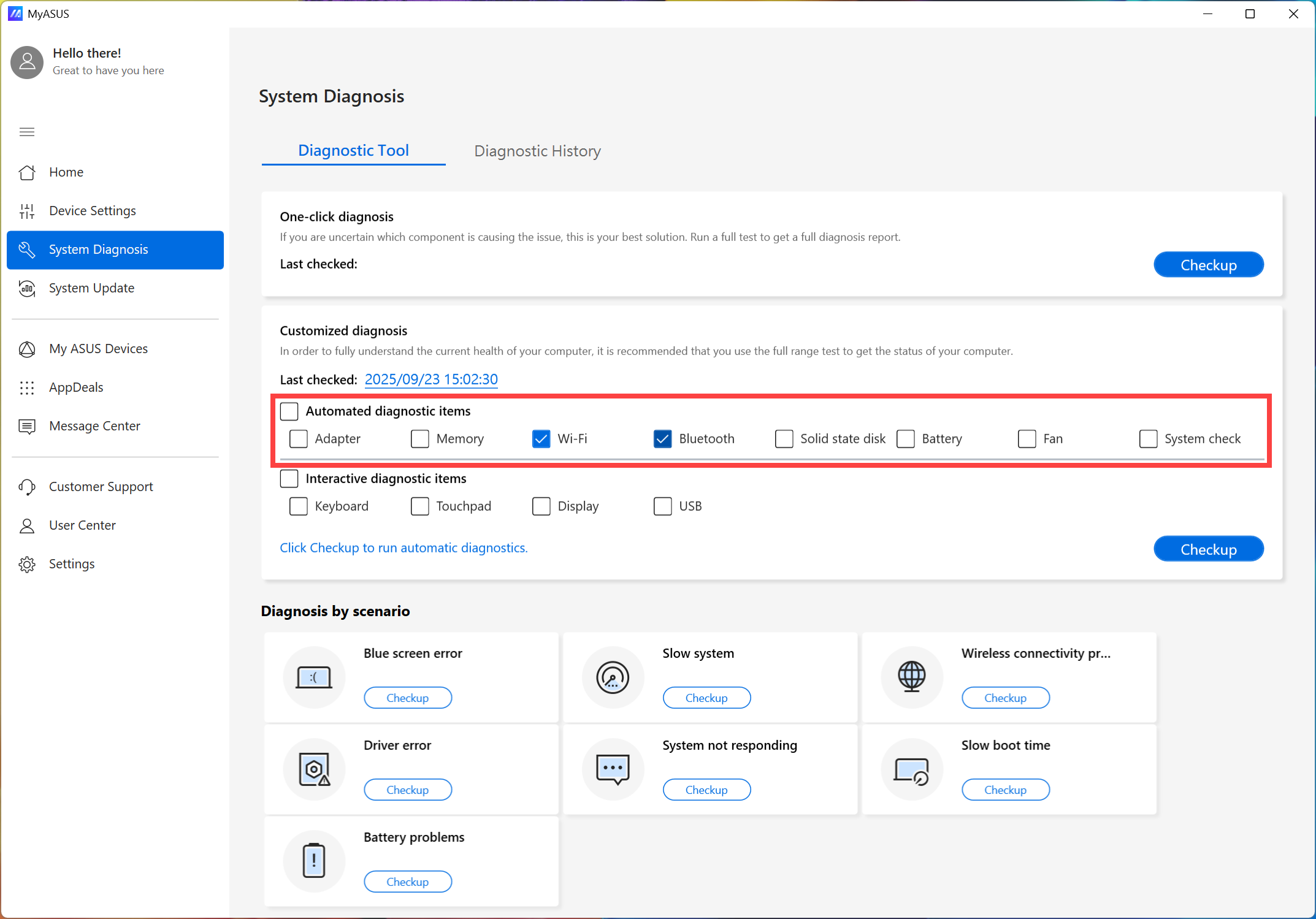
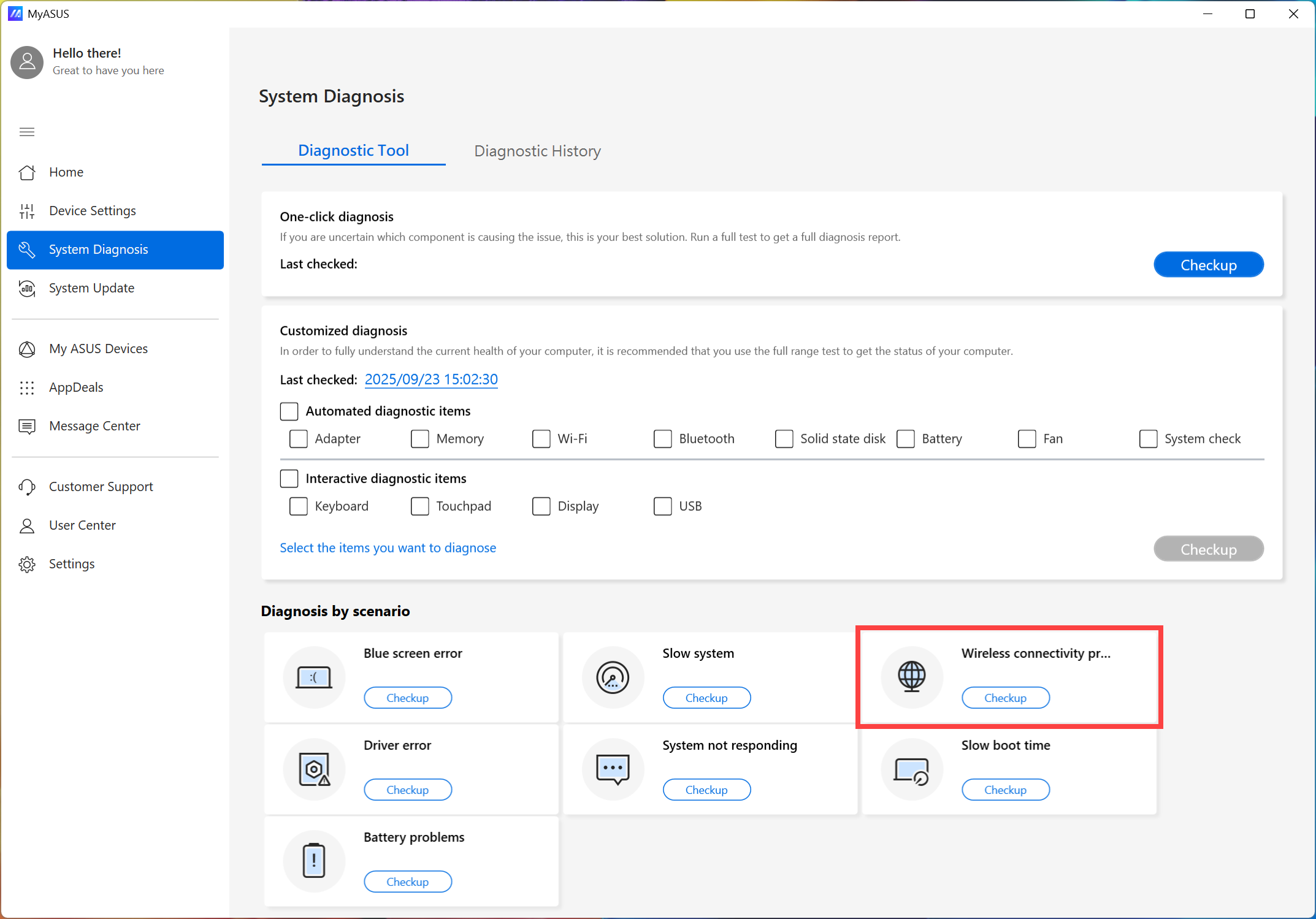
Question 3: How to apply the repair request after doing Hardware Diagnostic on MyASUS?
Answer 3: Here you can learn more about How to apply the repair request after doing Hardware Diagnostic on MyASUS.
Question 4: Why can I only see the partial features in the MyASUS app?
Answer 4: When you download MyASUS from the Microsoft Store, you may only see partial functionalities, lacking features such as system diagnostics, software updates, and device settings. It is because your product is not equipped with ASUS System Control Interface driver or the driver version does not support the full functionality of MyASUS. For more information, please refer to this article.
Download MyASUS now to experience perfect service. Click below!

